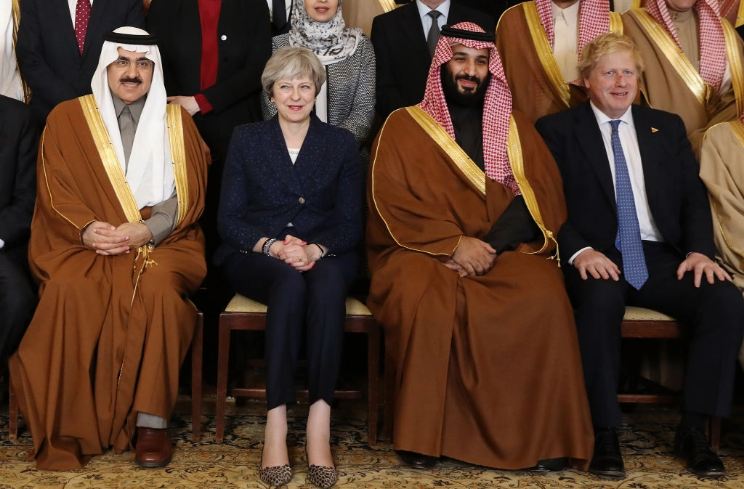Alwaght- Former British Foreign Minister Boris Johnson suggested in August 2016 selling arms to Saudi Arabia despite expectations that they would be deployed in Yemen where only days before an airstrike by Saudi-led coalition on a potato factory had killed 14 people, The Guardian reported.
According to the British media, campaigners have blamed the then top British diplomat and the now Tory leadership frontrunner for showing a “total disregard” for Yemeni civilians by allowing the sales, revealed for the first time in emails disclosed via a freedom of information request.
Andrew Smith of Campaign Against Arms Trade accused the Conservative MP of showing a lack of compassion: “For Boris Johnson to approve a missile sale the day after a food factory was destroyed shows the total disregard that he and his colleagues hold for the rights and lives of Yemeni people".
A day after the sale was recommended for approval by Johnson, a village school in Yemen was hit by another deadly airstrike, prompting further complaints that the UK is complicit in breaches of international humanitarian law.
Saudi Arabia and a number of its regional allies launched a devastating campaign against Yemen in March 2015, with the goal of bringing the government of former President Abd Rabbuh Mansur Hadi back to power and crushing the Houthi Ansarullah movement.
The brutal aggression has also taken a heavy toll on the country’s infrastructure, destroying hospitals, schools, and factories. The UN has said that a record 22.2 million Yemenis are in dire need of food, including 8.4 million threatened by severe hunger. According to the world body, Yemen is suffering from the most severe famine in more than 100 years.
UK arms controls mean that the foreign secretary has to be consulted on whether the Department for International Trade should licence “precision guided weapons systems and munitions that are likely to be used by the Saudi Royal Air Force in Yemen."
An email dated 12 August 2016 to the Export Control Joint Unit, responsible for licensing UK arms deals, says that Johnson “was content” to advise that the licensing of components for Paveway bombs should go ahead.
A few days earlier, on 9 August, the Saudi-led coalition resumed airstrikes on Sana’a at the end of a ceasefire that had held since April. Reports at the time said that more than half of those killed in the strike were women.
A day after the approval email was sent, on 13 August, Saudi-led coalition hit a village school in the Sa’ada province, where 10 children were killed and 20 more injured.
The then cabinet minister has previously defended the arms sales to Saudi regime during his time in office, saying in September 2016 that Saudi-led bombing campaign is not “in clear breach” of international humanitarian law.
Previously disclosures show that Johnson also assented to arms sales to Saudi Arabia in November 2016, the month after a funeral was bombed in Sana’a and dozens killed.
The UK is estimated to have licensed the sale of over £4.7bn worth of arms to Saudi Arabia since bombing began in March 2015. The Persian Gulf nation has been the largest buyer of British-made arms for decades.
The correspondence shows that the Foreign Office’s Arms Policy Export Team has a duty to advise whether “there is a clear risk that these exports might be used in a serious violation of international humanitarian law".
Officials in the export team concluded that “this clear risk test has not been met” in an email dated 10 August.
In another email, dated 27 July, the Export Team declare: “We have increased confidence in the Saudi pre-planned and dynamic targeting processes".
That was criticized by the academic who originally obtained the emails, following a 20-month battle, Dr Anna Stavrianakis, a senior lecturer in international relations at the University of Sussex.
The academic said: “Coming days after an attack on a food factory, this information that suggests ‘increased confidence’ in Saudi processes is at odds with events on the ground".
The court of appeal is deciding on a claim brought by the Campaign Against Arms Trade against the legality of the export of UK arms to Saudi Arabia for use in Yemen. The high court had determined such sales were legal in July 2017, but two judges said that could be challenged in the higher court.



























